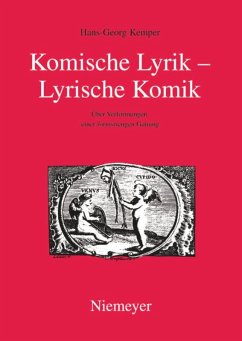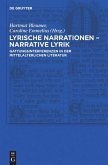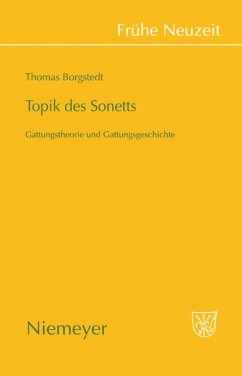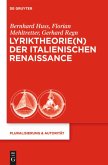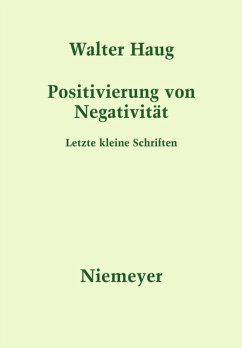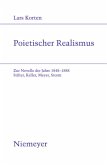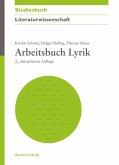The study refutes the prejudice that comic poems are inferior examples of the serious genre of lyric poetry. The comic deformations are actually produced by the very compression of the form and content of the serious poem; they come about as the result of the norms of the genre and exaggerations of fashions, styles and world-views, and in addition have an unwitting comic effect on later readers. This is even true of Paul Gerhardtâ??s sacred poems or Schillerâ??s love poetry. Masters of their art such as Goethe or Heine blend the serious and the comic and thus create a complex new type of genre.
In der ernsten Gattung Lyrik gelten komische Gedichte als 'lachhaft' und minderwertig. Dieses Buch möchte die Beziehung zwischen Ernst und Komik in der Lyrik neu bestimmen. Es zeigt zunächst, daß die Gattung sich über ihre formale Verdichtung definiert. Komik resultiert dann aus den Verformungen solcher Verdichtung. Damit eröffnet sich in kulturgeschichtlicher Perspektive an Beispielen von etwa 150 Autoren aus fünf Jahrhunderten ein eindrucksvolles Panorama lyrischer Komik. Es reicht von 'Volkes Stimme' über ernste Satire und Groteske, scherzhafte Gattungen, spielerische Formen von Parodie und Nonsense bis zu poetologischen Spiegelungen und zu komisch-ernsten Misch-Formen (Teil I). Aber auch die ernste Lyrik der frühen Neuzeit und der Moderne ist wegen häufiger Überanstrengung der Form komik-gefährdet und gewinnt aus historischer Distanz tragikomische Züge (Teil II). Insofern ist Komik in der Lyrik ein kreativer Spiel-Genosse und Prüfstein des Ernstes und damit ein vielgestaltiges, vergnügliches, zugleich ernst zu nehmendes Fundament der Gattung.
In der ernsten Gattung Lyrik gelten komische Gedichte als 'lachhaft' und minderwertig. Dieses Buch möchte die Beziehung zwischen Ernst und Komik in der Lyrik neu bestimmen. Es zeigt zunächst, daß die Gattung sich über ihre formale Verdichtung definiert. Komik resultiert dann aus den Verformungen solcher Verdichtung. Damit eröffnet sich in kulturgeschichtlicher Perspektive an Beispielen von etwa 150 Autoren aus fünf Jahrhunderten ein eindrucksvolles Panorama lyrischer Komik. Es reicht von 'Volkes Stimme' über ernste Satire und Groteske, scherzhafte Gattungen, spielerische Formen von Parodie und Nonsense bis zu poetologischen Spiegelungen und zu komisch-ernsten Misch-Formen (Teil I). Aber auch die ernste Lyrik der frühen Neuzeit und der Moderne ist wegen häufiger Überanstrengung der Form komik-gefährdet und gewinnt aus historischer Distanz tragikomische Züge (Teil II). Insofern ist Komik in der Lyrik ein kreativer Spiel-Genosse und Prüfstein des Ernstes und damit ein vielgestaltiges, vergnügliches, zugleich ernst zu nehmendes Fundament der Gattung.

